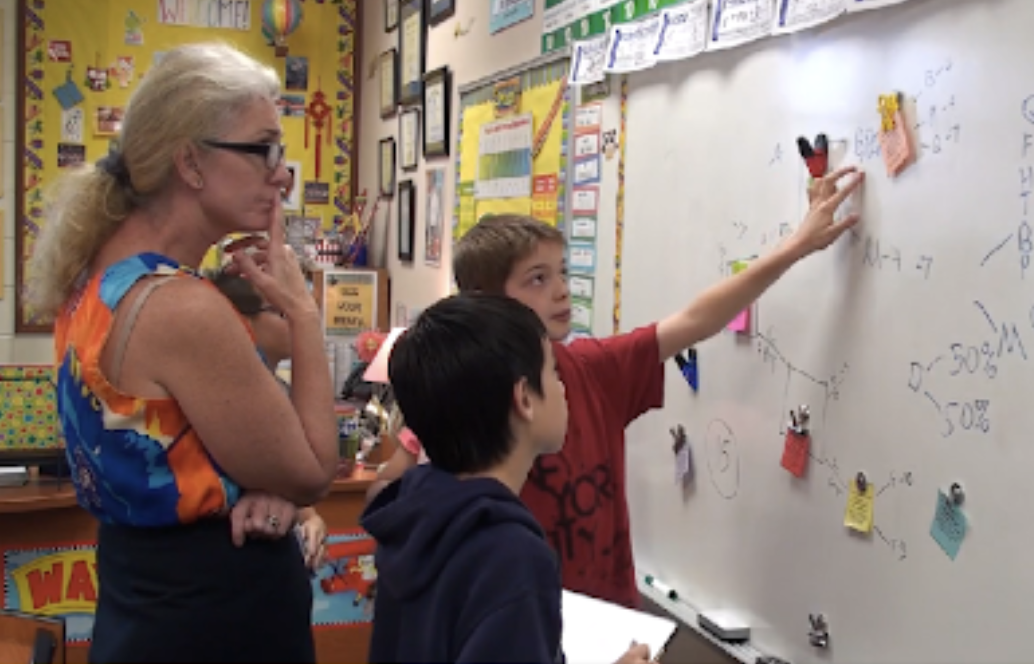
SCALE K-12: Building the Future of Careers in Microelectronics
SCALE K-12 is a program dedicated to preparing students for careers in microelectronics (ME) by providing teachers and schools with the tools to create and implement engaging learning experiences centered around microelectronics concepts and contexts.
ABOUT US
Fostering Future Innovators
SCALE K-12 empowers students for microelectronics careers while engaging entire school systems to integrate microelectronics across K-12 education. Through curriculum development workshops and vertical alignment initiatives, teachers design modules and activities, fostering exposure and interest in microelectronics for diverse student backgrounds.
PROGRAM EXECUTION
Integrating Microelectronics Across Districts
Practically, SCALE K-12 works with targeted school districts to implement microelectronics integration across the entire school system. There are a few ways we plan to execute this:
VERTICAL ALIGNMENT >
for school districts to ensure students from Kindergarten to high school graduation are engaged with microelectronics
CURRICULUM DEVELOPMENT >
with teachers and university partners through summer workshops, interactive feedback loops, and support for implementation in the classroom
VIRTUAL PROFESSIONAL DEVELOPMENT >
for teachers around the world to learn about the curriculum and get instruction to how to integrate microelectronics into their classrooms
SUMMER CAMPS >
for K-12 students to learn about microelectronics in an out-of-school setting
NOYCE ME MASTER TEACHER FELLOWS >
for K-12 teachers to become district leaders in microelectronics integration
PROGRAM GOALS
Preparing Students for Microelectronic Careers
The goal of SCALE K-12 is to provide introduction & access to microelectronics, as well as develop interest & skills, through a variety of K-12 innovations: teacher and student programming, curriculum development, & nanoHUB online access.
Recent SCALE K-12 Resources
NEWS & EVENTS
What’s Happening with SCALE K-12
-
Read our latest newsletter here
-
Now in its 12th year, the Engineering Gift Guide has helped millions of families find meaningful, hands-on presents that encourage curiosity, problem-solving, and confidence in STEM. Past editions have featured a wide range of toys, games, and books that connect engineering to everyday life. In 2025, the focus narrows to microelectronics, the science of designing and producing the small but mighty electronic components that power modern devices.
-
The theme for our 2025 conference is “Empowerment” and focuses on how AI can be leveraged to empower educational stakeholders, particularly teachers and their students. Presentations will include resources and strategies to promote student learning and further teacher development.
-
SCALE K-12 has been funded by the National Science Foundation to begin a microelectronics master teacher fellows program. Find out more here.

OUR IMPACT

“SCALE K–12 has accelerated our ability to bring NASA mission science into classrooms across the country.” – Daniel Loveless

“It’s amazing to see students go from unsure to deeply curious. SCALE K–12 sparks lasting interest in STEM.” – Allison Clegg

“My students are discovering engineering through SCALE K–12—something they might never have encountered otherwise.” – Mya Lorenz

“Watching students blend STEM with storytelling—coding, creating, and communicating like professionals—has made SCALE K–12 the highlight of their school year.” – Anthony Price

“Bringing cutting-edge tech into my band classroom through SCALE K–12 is opening doors my students never expected.” – Katelyn Helms

“SCALE K–12 gives students real-world engineering experiences—from client challenges to hands-on tools like CNC machines.” – Justin Resler

“Coming back for a second year, I feel confident and excited to teach microelectronics—thanks to SCALE K–12’s hands-on learning and supportive community.” – Kim Wright

“This program revealed just how many microelectronics careers are within reach—and I can’t wait to share that with my students.” – Ivonne Alarcon















